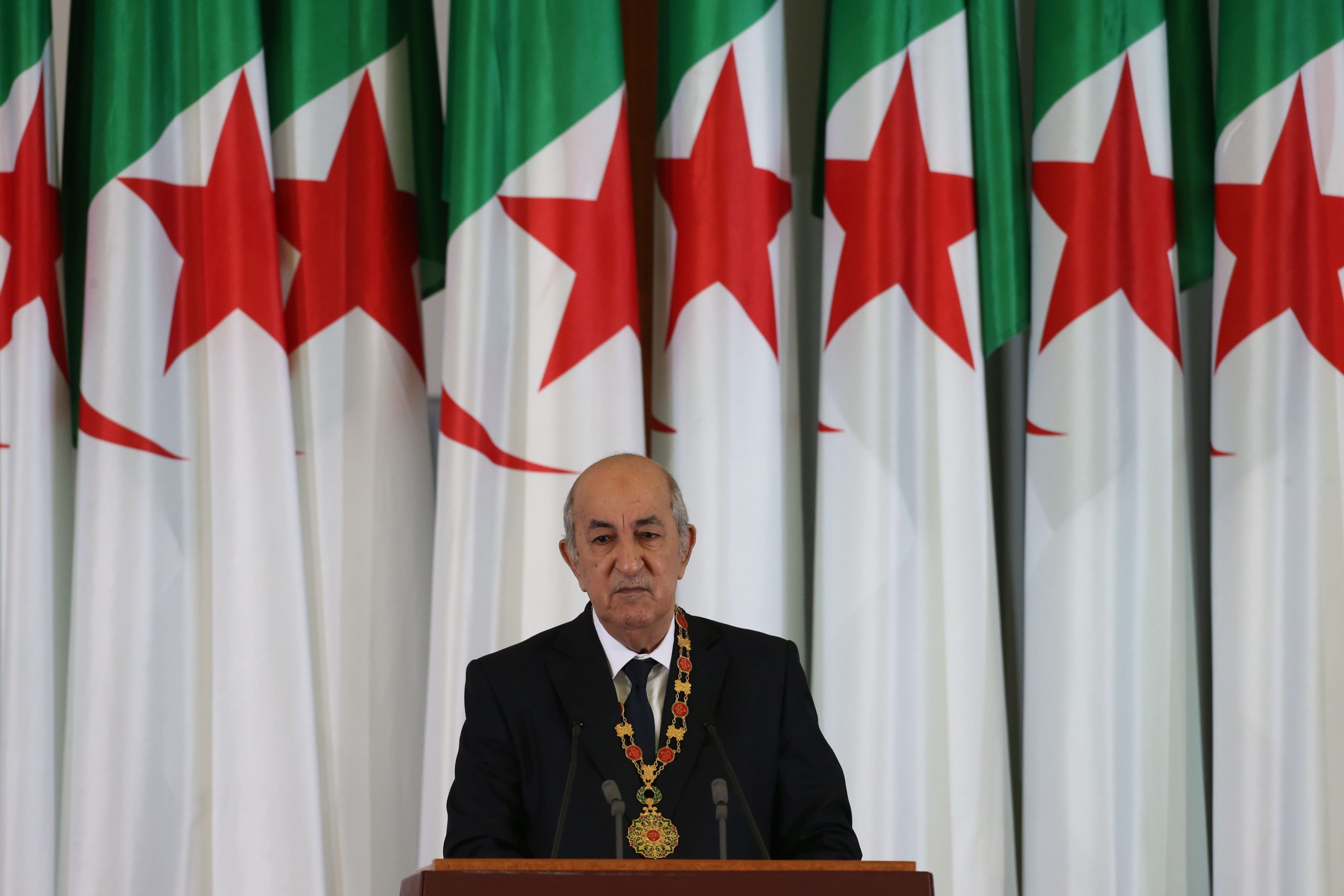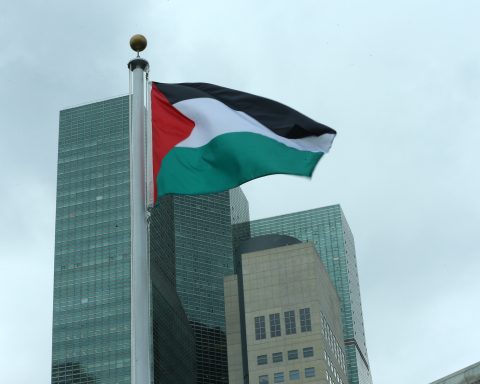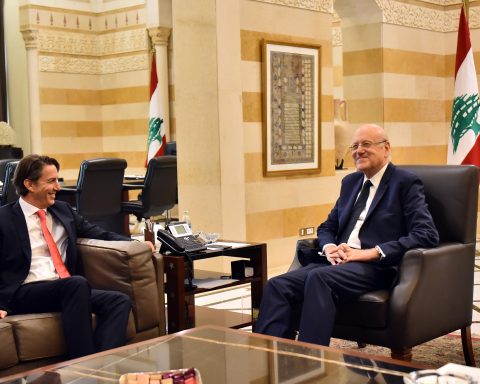The year 2022 is a year of celebrations in Algeria, as the country will be celebrating the sixtieth anniversary of independence, ending a hundred and thirty-two years of harsh and brutal occupation. This is a historic step that would catch historians’ and political analysts’ interest in order to better understand the entire process of Algeria’s post-modern politics. One cannot recall July 5, 1962, without mentioning March 19, 1962, and January 11, 1992. The former led to the fruitful result and efforts of a vivid negotiation process with the French authorities to end the seven and a half years of a bloody war of independence, while the latter aborted the first peaceful transition democratic process in Arab countries.
Thirty years later, on January 11, 1992, following March 19, 1962, Algeria entered into a terrible scale of political violence, instability and social cohesion uncertainty in the aftermath of the military coup against then-president Chadli Bendjeddid, who was seen as the Gorby of Arabia because of the political and economic reforms that he put in place from 1989 to 1991.
Bridging points
The years 1962 and 1992 are the bridging points that lead to the year 2022. Algeria since the election of President Abdelmadjid Tebboune, Algeria’s eighth president, whose political capital to some extent his charisma, rhymes with that of President Chadli Bendjeddid when he succeeded a charismatic leader like President Houari Boumedienne in February 1979.
After a shaky start to his term in December 2019, he slowly wore the presidential profile that Algerians wanted him to fit in, which was linked to the COVID-19 pandemic. Later, the president himself contracted the virus that put him in convalescence for months. Tebboune did, however, come back and launched a series of domestic institutional and economic reforms in the second half of 2021. The country did take several steps towards neighboring countries, from Libya and Tunisia on the eastern borders, Mali and Niger on the southern borders to the western side with Mauritania and Morocco, adding a rapprochement initiative with Egypt and new overtures towards the Gulf countries. All these actions go with Algeria’s regional involvement imperatives.
Post-2019 Algeria wants vehemently to empower its diplomacy via mobility that was set on the country’s active diplomacy doctrine trajectory. Algeria regained its leading voice in the African Union, using full energy and goodwill by positioning itself as a relevant facilitator in sub-regional conflicts; for instance, in the African Sahel countries, and de-escalation move on the GERD dispute between Egypt-Sudan and Ethiopia.
New realities
On the other hand, the country did have another seasonal tension with France after three months of “humor” diplomacy. The year 2022 did send a ray of hope to ease the tensions between the two countries’ abnormal relations. As the situation with Morocco has reached a worrisome peak, the two countries’ permeant tensions might continue for decades.
Thus, Tebboune announced in his inauguration speech on December 19, 2019, that he is committed to preserving relations based on respect and brotherhood with Algeria’s neighbors. The Algerian President insisted that the country’s role is one of the most influential and pivotal on the African continent and that it must regain its natural position on the regional scale by playing its unifying role in Arab countries alike.
In spite of this, its diplomatic relations ruptured with Morocco on August 25, 2021, as a result of the permeant tensions narrative that was shaping the never-ending cold war between the two largest Maghreb countries. This is a complex equation that is damaging any integral process for the people in the region and local economic development. Following the rhetorical approach of both administrations to the ongoing crisis, Algeria, nonetheless, does not seem too enthusiastic about the revival of the Maghreb Arab Union. Instead, Algeria is looking more towards bilateral actions instead.
For instance, Algeria and Mauritania signed several cooperation agreements in the sectors of higher education, scientific research, health, vocational training, and small and medium-sized companies on the sidelines of the state visit of Mauritanian President Mohamed Ould Cheikh al-Ghazouani to Algeria in December 2021.
Regarding the Libyan political impasse and humanitarian crisis, Algeria is acting like a solid pivotal state, whose national security concerns are for a stable Libyan to a similar level in Tunisia and the African Sahel countries.
Subsequently, Algeria’s new shifting paradigm of preemptive and pro-active diplomacy is setting an upsetting agenda tone at the next Arab League Summit that will be taking place in Algiers in March 2022. This summit will also be taking place at a symbolic month for the sixtieth anniversary of the Evian Accords of 1962 that called for a ceasefire following seven and a half years of resistance by the Algerian Liberation Army (ALN).
Regional prestige and impacts
Hence, Algeria’s diplomacy is in the forward mode after two decades of neutral shift. The leaders of Arab states will be convening in the summit meeting in March, responding to the invitation of President Abdelmadjid Tebboune, who has sent his active Foreign Minister, Ramtane Lamamra, to Riyadh, and an expected state visit by President Abdelmadjid Tebboune to Cairo before the Arab League Summit. Algeria counts on the presence of the two Arab states as natural political and geopolitical heavyweights in the Arab world. The Palestinian cause and the latest developments in Tunisia, Libya, Sudan, Yemen, Iraq, and Lebanon will be hot topics at the summit. Although, other issues are expected to come up, including the Algeria-Morocco diplomatic tensions and the possible re-introduction of Syria to the Arab League.
Algeria is looking for a summit that could be a ray of hope like it did in 1988’s summit, which had sent an optimistic message of Arab “unity.” Yet, these days, the region’s sky, from Nouakchott to Muscat, looks blurry. The Arab geopolitical context bears little resemblance to the political and geopolitical turmoil of 1988.
Next March, the Arab League Summit meeting, the second in three decades held by Algeria, comes at a time of rare entente in the conventionally troubled inter-Arab states’ disagreements and tensions. Arab leaders are still divided over the Palestinian cause, the normalization process of the six Arab countries with the Jewish state has deepened division, enhancing the uprising sentiment and action inside the Occupied Palestinian Territories.
Algerian authorities want to come out of the March 2022 Arab League Summit stronger on the regional level and weigh in on the power vacuum that emerged in the aftermath of the first and second waves of the Arab uprisings. Nevertheless, Arabs, both the masses and the elite, are not putting any dinars in their pockets and are not betting on the goodwill of Algeria. Consequently, local politics and geopolitical imperatives are preventing any reconciliation between Arab states leaders and long-term solutions to Arab countries’ political crisis, foreign occupations, and direct interference.
On this stance, Arab state leaders are oddly enjoying their sentiments for disagreement on all the dramatic events that are taking place in Tunisia, Libya, Iraq, Syria, Lebanon, Sudan, and Yemen, which are experiencing a series of political instability, on the public or personal level. A few months ago, Tebboune called on Arab states to put pressure on the West to force Israel sinto showing less harsh policies towards Palestinians, and decided to host a meeting for Palestinian factions in the near future, as Algeria pledged to grant $100 million to Palestine and 300 scholarships for Palestinian students.
In sum, Algeria will actively work to put the Palestinian cause at the heart of the priorities of the next Arab League Summit. This would preserve Algeria’s prestige and loyalty to the Palestinian people and authorities, which is an authentic principle that is carved into the country’s foreign policy doctrine that goes back to the days of its struggle for liberty. Since its independence in 1962, Algeria has been a loud voice and an advocate of regional cooperation on the issue of foreign military interventions.
Algeria has a diplomatic tradition. It did join Arab regional efforts against Israeli forces in 1967 and 1973, provided its mediation services to address conflicts and diplomatic tensions, including the Algiers Accords in 1975 between Iraq and Iran, and played a major facilitator with Morocco and Saudi Arabia during the Lebanese Civil War that led to the Taif Agreement in 1989. In light of the ongoing events that are shaping the Arab countries’ political and geopolitical landscapes, it is important for Algeria to set the tone on regional geopolitics and geoeconomics.














